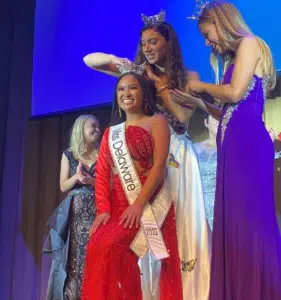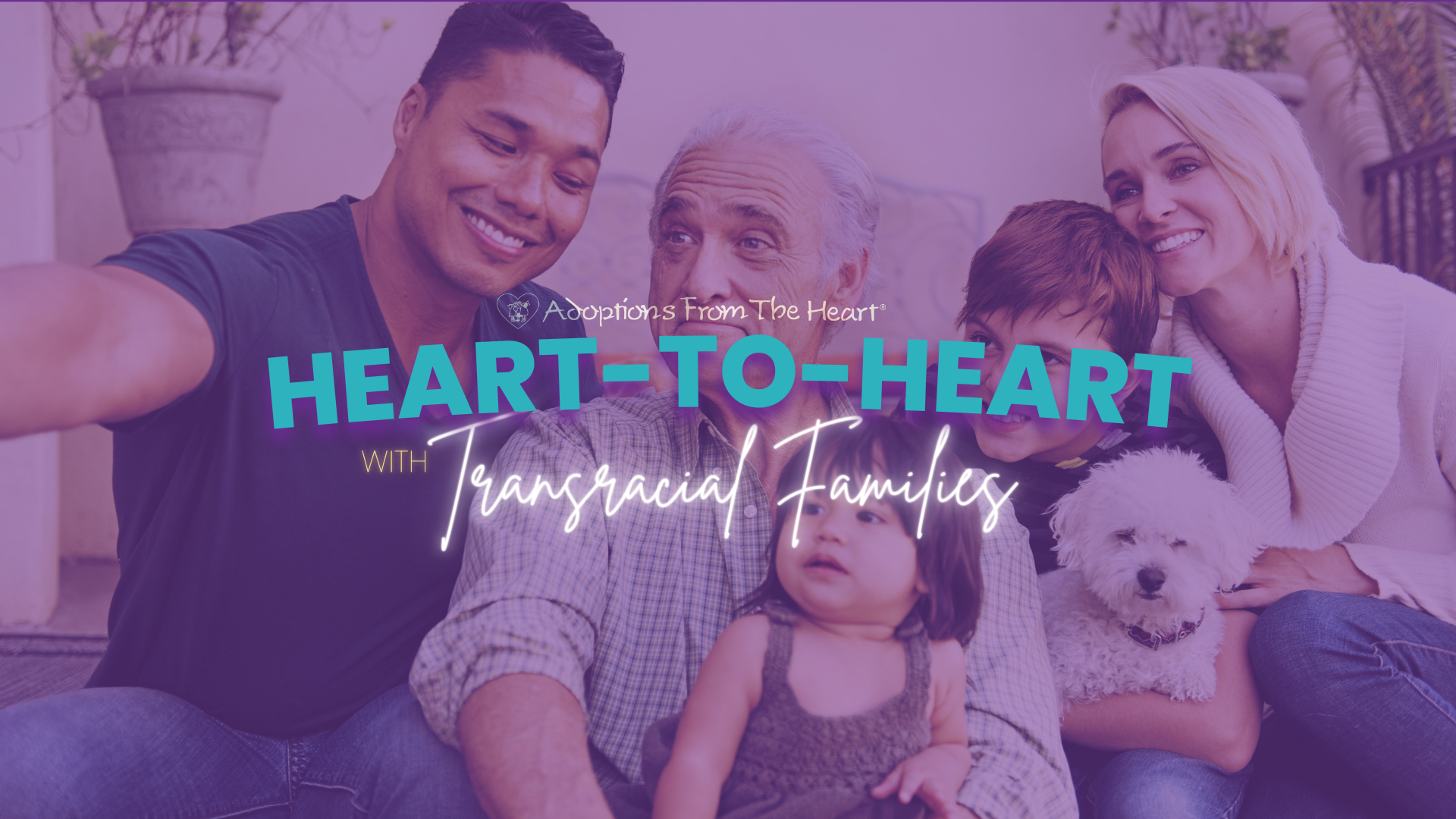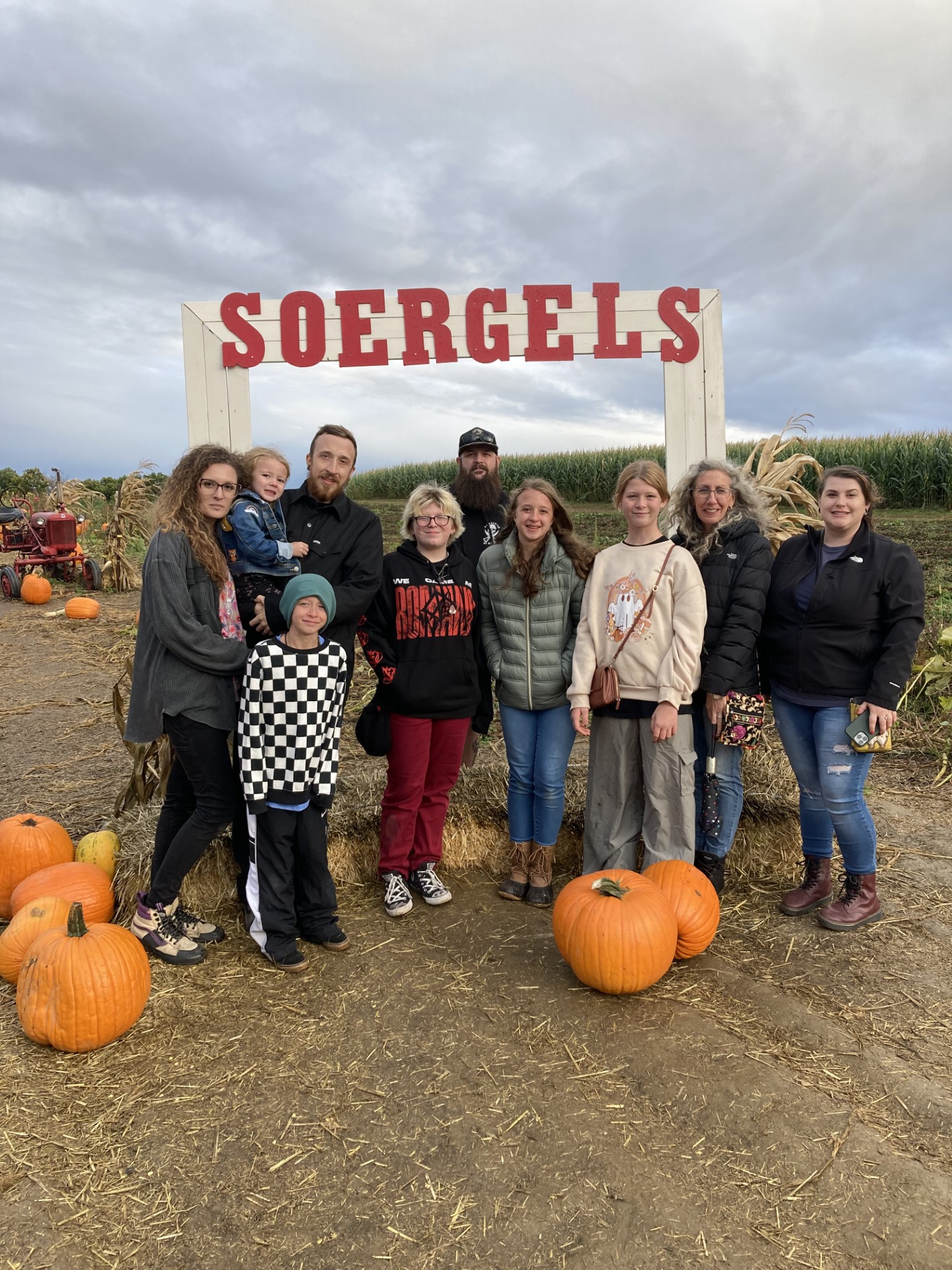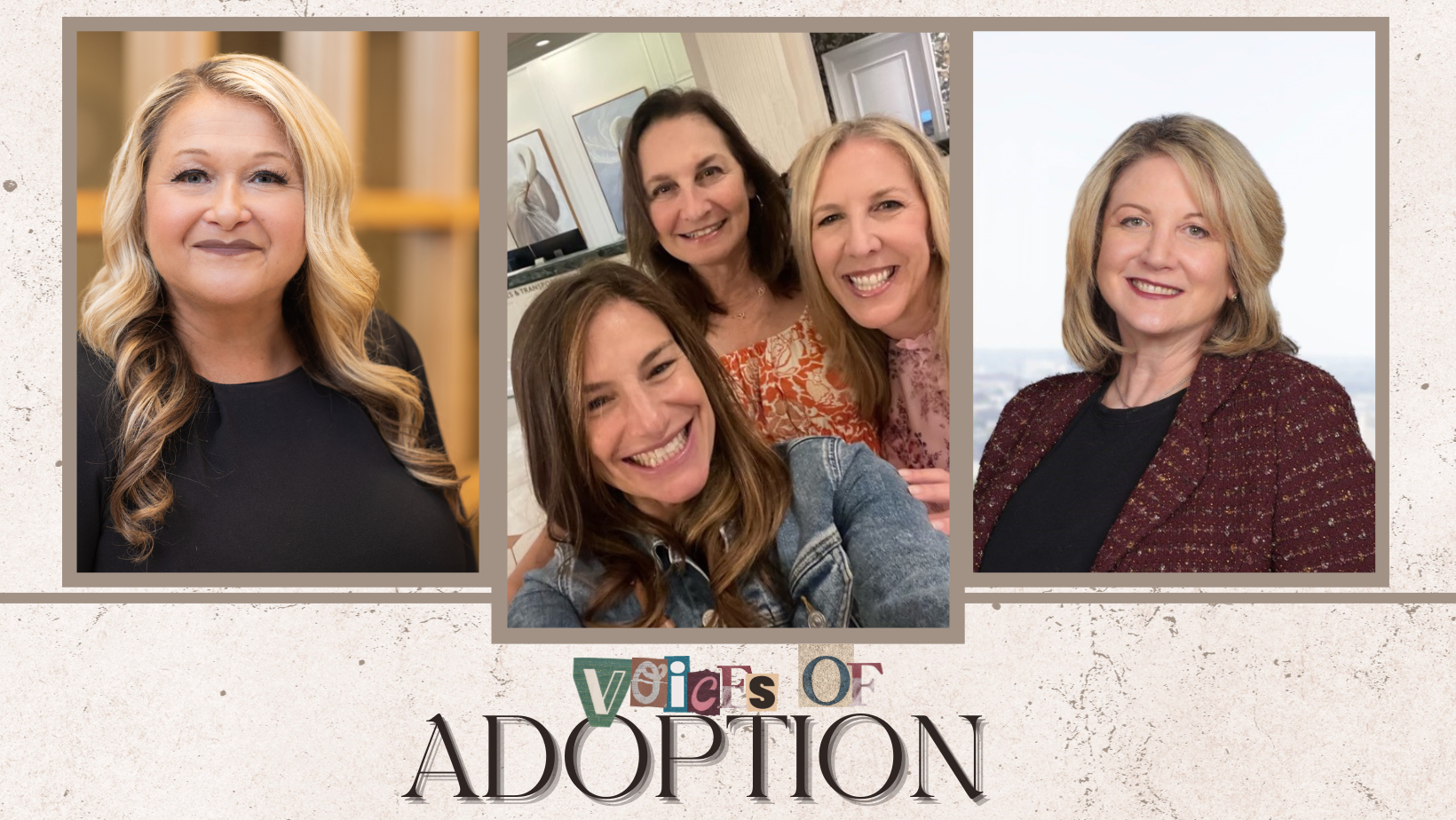
This month, Adoptions From The Heart had the pleasure of sitting down with Miss Delaware, Grace Otley, to discuss her journey as an international adoptee through Adoptions From The Heart about 22 years ago.
“I was adopted from an orphanage in Ho Chi Minh City, Vietnam, and flew home on my first birthday,” Otley said. “I have an aunt and a few uncles, but my parents and I are my only immediate family living in Delaware- I’ve lived in Delaware for 22 years now.”
Being an international adoptee, Grace mentioned feeling different growing up in a majority white community. “I felt different immediately growing up in the community of Delaware. I went to a mostly white elementary school, and to be honest, it was the same for middle school, high school, and even college,” she said.
“When you’re younger, children love to point out the differences between them and you. They made it a point to do that a lot in elementary school. Not just skin color and physical differences, but by being Asian American, they also would point out the differences between families. We would have bring-your-parents-to-school days or fairs, and they would say that’s not your real family because you look different. That is what started to shape my realization that I was different.”
Grace mentioned her experiences in school and the understanding that teachers also had little knowledge and understanding of the adoption world. She said it was not middle and high school, but that elementary school was where she found identity and the ignorance of others to be most challenging.
“Showing children what adoption is and how it’s not so different from a biological family, per-se; it was never talked about. That’s a big reason why children wouldn’t understand and would criticize. They didn’t understand.”
Otley continued,” I feel like young kids are some of the most honest people you’ll ever meet. So maybe that played a part in it, too, because kids are so real, and sometimes it comes across as rude or mean. However, they weren’t teaching about adoption and unconventional families.”
Otley let us in on some of the issues she had experienced as a child adoptee, such as bullying, which quite a few adoptees sadly experience.
“The bullying was mostly racial; kids said things like they don’t look like you, they can’t be your parents. That’s something that made me grow up quickly; my classmates being super honest,” Otley said.
As an adoptee, especially an adoptee in transracial adoptions, there are many challenges one could experience as they grow and begin discovering their identity and who they are amongst peers with outside opinions. Grace spoke to us about other challenges she’d faced in her adoption journey.
“I think there are a few facets to this. One of the challenges that follow me throughout life is that we talked about how you feel different as a child, which is brought out immediately. But I think you always feel a little different throughout life, no matter how old. It could be that we continuously have negative perceptions of adoption or don’t talk enough about the positive aspects of it and what it entails,” she says. “But you feel different from your peers throughout life, which is emphasized on social media when you see videos about adoptions or negative perceptions in all facets of media.”
Otley continues,” The other thing is your challenges with identity. Specifically, I’m Asian-American. I was adopted from Vietnam. My dad is a mix, but I do identify with my mom’s Italian culture. I’m surrounded by a white family who doesn’t understand Asian-American or Asian culture, but I come from Asian culture. So which one do I belong to? Which practices do I take on? It isn’t easy,” she admits. “That’s a little bit of a struggle that I’ve had in life, but I have been able to face that challenge by becoming a part of my Asian culture a little bit more. Partaking in Vietnamese culture and activities makes me feel more accepted and find a little more of my identity.
As mentioned in the opening, Grace Otley is also Miss Delaware 2022. Grace spoke a little about her journey to Miss Delaware and how adoption and pageant worlds have collided in the past and present.
“I began playing the violin when I was about three. I started classically, joined the orchestra, got a little funky, and joined a summer camp, primarily for electric instruments. That was my introduction to my love of contemporary pop and R&B,” she mentioned. “I even played the violin with a band called The Who growing up. Eventually, I found my musical voice and combined electric violin with singing; playing in small restaurants and political events. Then, I became Miss Delaware’s outstanding teen,” Otley said.
She continued,” With the Miss Delaware Scholarship Organization, I got to perform at different events across the state and national stages, like the Miss America stage in December,” she said. “I wouldn’t say there was a moment pageant and adoption worlds collided. However, by choosing adoption advocacy as my social impact initiative, that’s how I’ve brought them together. It’s also one of the things I like the most about the Miss America organization—having someone who’s an Asian-American musician is special. Representation as a title holder or as someone in the media is super important, most importantly for the younger children who look like me and are looking up to me.”
Grace mentioned struggling with identity growing up, something many adoptees struggle with. In speaking with Grace, she mentioned that, as an adoptee, you sometimes have to create your own identity through evolution and find the senses of yourself that you create. Family will be family, whether through blood or built- and while many adoptees question where they come from, Grace says she’s happy with the family she has created.
“I have to be honest, the word that comes to the forefront is difficult. It hasn’t been easy. Young girls and people of color see these white beauty standards, live in a predominantly white area as they do, and feel like they have to or need to be white to feel that sense of acceptance at one point in their life. And I had grown up with that feeling,” she said. ” In college, I connected more with Vietnamese-American culture through Viet Fest festival. I was about fifteen when I first participated in the Tysons Corner, Virginia, DC festival and won first place. I performed with my violin and sang, but it set the standard. To have won something and been supported by a whole organization that supports Vietnamese culture, showing talent and the beauty of the culture.”
Grace continued doing festivals until she was about eighteen years old, where she then competed and was named Miss Vietfest at that year’s event, a pageant for Vietnamese women. Otley said she was highly honored because that was when she felt connected to and accepted by her culture. A Vietnamese family per-se, did not raise her, but for the Vietnamese community to honor her enough to represent the community meant a lot. Grace began attending heritage celebrations, and she felt proud of being Asian for the first time. Allowing herself to open up to the uniqueness and how beautiful of a culture it is.
“In general, it’s just crucial for you to be present,” Otley advised. “Speak up about your story because many people share that, and many benefit from feeling heard and surrounded by similar entities. I feel people don’t perceive adoption positively because they don’t understand. I did a National Qualtrics survey that I administered to a random group of people to determine their perceptions of adoption. And one of the things I did in the survey was I showed a Valentine’s Day card from 1997 that said, Even if you were adopted, I’d still love you. Not that you are, of course. At least, I don’t think so. But come to think of it, you don’t look like Mom and Dad. Maybe you should get a DNA test or something. Or. Oh, well, don’t even worry about it. We all love you, even if your real parents don’t. Happy Valentine’s,” Grace read aloud. “It’s one of those things like, oh, thank you for a little offensive, backhanded compliment, But maybe not so backhanded for the people who don’t understand the hurt that comes from that.”
Otley’s research measured that most subjects said they would have purchased the hallmark card, proving her point that people can’t defend what they do not understand. Agencies are really where education starts.
“Based on my knowledge from Adoptions From The Heart, I think your adoption agency encourages help, aid, and education to those in the triad. In addition to agencies lowering adoption costs, I think having more webinars, pieces of training, and just any public social media outreach normalizes the adoption process to create a more comfortable community for adoptive families,” Otley admits. “I want to see people speaking about their stories more. The biggest problem is we want to hide it because we don’t want to feel different. But the reality is, we do have differences, and if we feel comfortable showing our differences and finding the beauty in those differences, that’s when things will start to change. I would love to see other adoptees speaking about their experiences, especially international, and being proud of their identity.”
When asked about support from family and friends, Grace has admitted to having incredible support. Aside from the mean kiddos in elementary school, she knows she can count on friends and says her parents have always tried to make her feel included.
“You don’t have to be openly supportive. You don’t have to be on eggshells. Support sometimes comes from not making you feel different and not pointing out that you’re different. Adoption is just a different way that I became a family. Support can be asking about my story and appreciating how my family became a family,” she said. “And I mean, my boyfriend is even learning Vietnamese right now! And he’s doing a better job at it than me,” she said jokingly.
“My advice to other adoptees is to acknowledge that developing confidence is a process and a journey. Embrace your differences and embrace your uniqueness because that, ultimately, that’s going to be what makes you proud,” she said. “For me, once I connected with my Vietnamese heritage, that’s when I felt the most confidence. I am Asian, but I’m also an American and I have all the different facets. I’ve grown up with my parents, who have shown me this lifestyle. But I also am proud of where I come from and my roots. I want to sustain that.”
“Once you find the people that will help you find that connectedness, it will fall in place. It always falls in place and works out the way it’s supposed to. I advocate for changing the negative stigma surrounding adopting adoptees. As we talked about, blood does not equate to family. So the negative stigma will create an uncomfortable and unwelcoming environment for adoptees to live in, and it will cause them to grow up with identity and self-esteem issues. And then also the way we talk about adoption with each other in the media will ultimately influence or encourage or discourage women from partaking in the process. So my biggest goal is to promote talking about adoption and encourage adoptees to speak about their stories. Stories encourage them to unite, create a stronger and more prevalent community, support adoptees and birth mothers, support adopting families, and make the process more accessible and positive.”
Adoptions From The Heart Thanks, Grace Otley, for speaking with us about her Adoption Journey and the road to the fantastic person she is today! To learn more about Miss Delaware, check out her social media below! Also, join us this November 17, 2022, for our Heart to Heart with Social Media Influencers, where you will be able to hear from Miss Delaware and other influencer triad members. Click here to register! Visit afth.org for more information, and follow us on Instagram at @adoptionsfromtheheart to stay up-to-date.
Learn More about Grace here:
Instagram: @graceotley and @missamerica.de
Miss America DE’s Official Website



